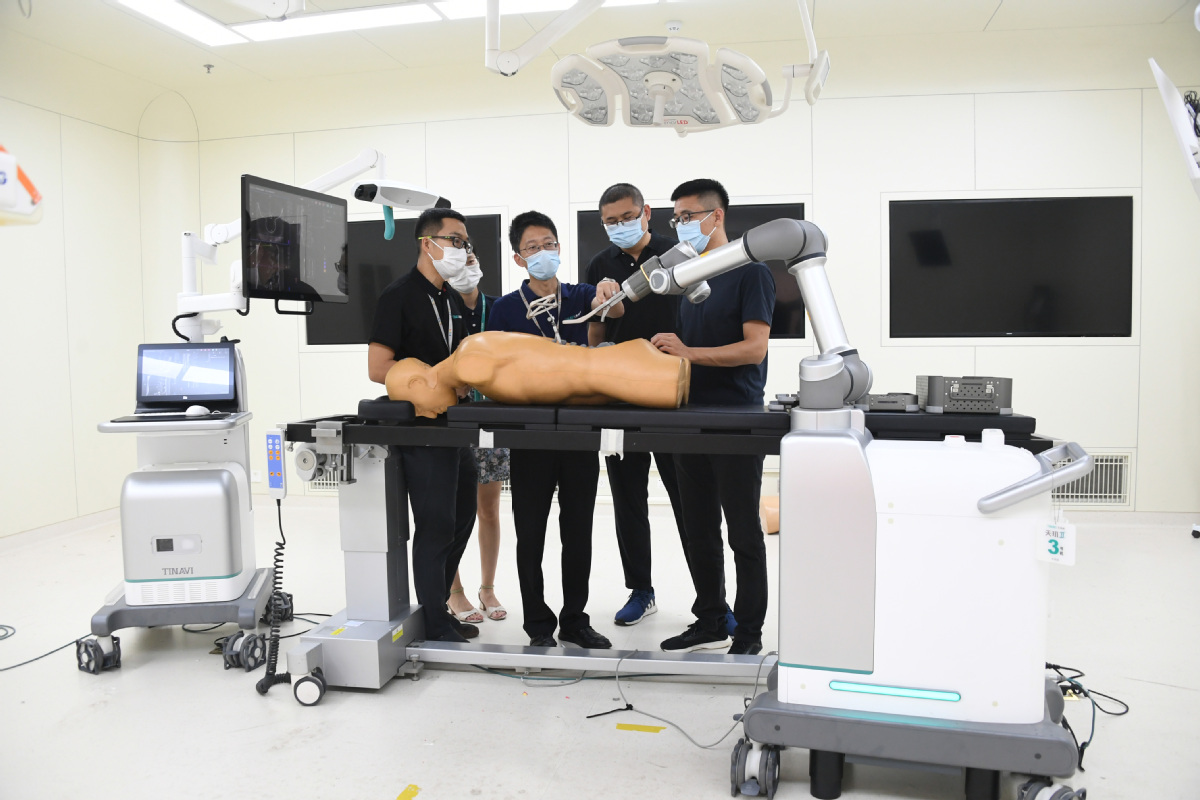Digital era remaking healthcare
By ZHENG YIRAN | China Daily | Updated: 2021-12-14 09:46

From treatment to medications to marketing, big changes afoot
China's healthcare industry has marched into the digital era, and digitalization will penetrate the field from inside to outside hospitals, from treatment to prevention and from its top levels to the grassroots, a recent report said.
The report, by EqualOcean Intelligence, a Beijing-based think tank, said that subcategories of digital healthcare, including electronic medical records, e-commerce pharmacies, health insurance and digital healthcare marketing, have reached a mature stage.
Other subcategories are still in an exploratory stage, yet have great development potential, it said.
In 2020, there were 69 significant investment deals in China's digital healthcare sector, up 25.4 percent on a year-on-year basis, the report said. From January to August, there were 47 such investment deals in the sector.
"COVID-19 has accelerated the digitalization process of China's healthcare industry," said Gao Xuezhen, research director at EqualOcean Intelligence. "Given the pandemic, telemedicine, online doctor-patient communication and online visits have become the best solutions. Both the patients' and doctors' acceptance of visits and drug purchasing online increased, which promoted the industry's investment in digitalization."
EqualOcean Intelligence said that in 2019, digitalization-related expenses represented roughly 23 percent of China's total hospital costs. By March 2020, the ratio had increased to 40 percent.
Researchers also are increasingly paying attention to digital healthcare. In 2020, there were 2,291 newly published reports related to digital healthcare, the think tank said. The figure is forecast to reach 2,539 by the end of this year. Hot topics include internet hospitals that provide remote consultations, electronic medical records, 3D printing, wearable devices and genetic big data.
Many internet-based platforms are eagerly developing digital healthcare.
Ping An Healthcare and Technology Co Ltd, also known as Ping An Good Doctor, a leading online medical and health service platform in China, reported that as of June 30, its half-year revenue surged 39 percent year-on-year to 3.8 billion yuan ($597 million).
Revenue from medical services grew by 50.6 percent year-on-year and contributed revenue of nearly 1.1 billion yuan. Revenue from consumer healthcare grew by 66.1 percent year-on-year to 714 million yuan.
Its registered users reached 400 million, an increase of nearly 55 million from the same period in 2020, the company said.
The platform, which uses artificial intelligence, offers high-quality online healthcare to consumers. Apart from online diagnoses, digital technologies help the company to streamline business functions by reducing the need for humans 'repetitive tasks, raising doctors' efficiency and lowering costs.
"Ping An Good Doctor will further strengthen its strategic upgrades," said Fang Weihao, chairman and CEO of the company, who spoke at a news conference. Fang said the company would focus on business-to-consumer "premium users" and introduce family doctor memberships. It will continue to improve online-to-offline services, "and strive to provide our customers with an easier, faster and more affordable user experience".
























